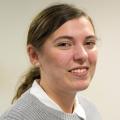AMBLESIDE writer and amateur historian Barbara Crossley has died - leaving behind four younger surviving siblings, three children, 11 grandchildren and 12 great-grandchildren.
The feisty-natured Barbara was born in 1927 in Rangoon, Burma.
When the family returned to England, Barbara attended a progressive boarding before studying at Bedford College towards a diploma in social work.
Barbara met her husband Bernard Crossley as a student during voluntary work in the war-damaged East End of London.
Barbara and Bernard wed in 1949 and made their home in Bolton.
After their children left home, Barbara studied art history at the Open University.
They both loved the Lakeland fells, spending holidays at Wray before moving permanently to live at Skelwith Bridge, which remained Barbara’s home for many years after Bernard’s death.
Barbara joined Ambleside Oral History Group in 1987, recording over 40 interviews with local people from all walks of life.
She also joined the Armitt Museum and Library as a volunteer, where her research led her to the Armitt’s rare collection of Victorian Poor Law correspondence, together with the Select Vestry minute books and the town constable’s Beggars’ Entry book.
With her professional background in social work, she was particularly interested in how society dealt with those in distress or misfortune, and their plight inspired Barbara to write her first book, ‘The Other Ambleside’, followed later by ‘Poverty in Ambleside’.
Barbara also collaborated as co-author with the academic veterinary pathologist Susan Haywood after the disastrous foot and mouth epidemic.
She loved opera, ballet, film, art, and had a great knowledge and love of Wordsworth’s poetry and was a volunteer guide with the Wordsworth Trust, showing visitors round Dove Cottage in Grasmere.
Barbara was well respected for her integrity and keen intelligence, and for all that she did to protect the histories of local lives.






Comments: Our rules
We want our comments to be a lively and valuable part of our community - a place where readers can debate and engage with the most important local issues. The ability to comment on our stories is a privilege, not a right, however, and that privilege may be withdrawn if it is abused or misused.
Please report any comments that break our rules.
Read the rules here